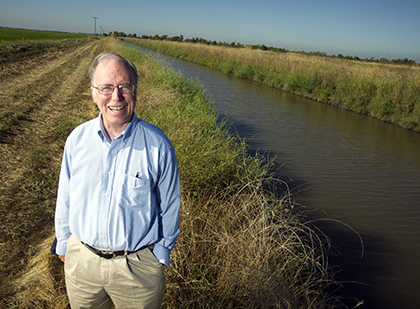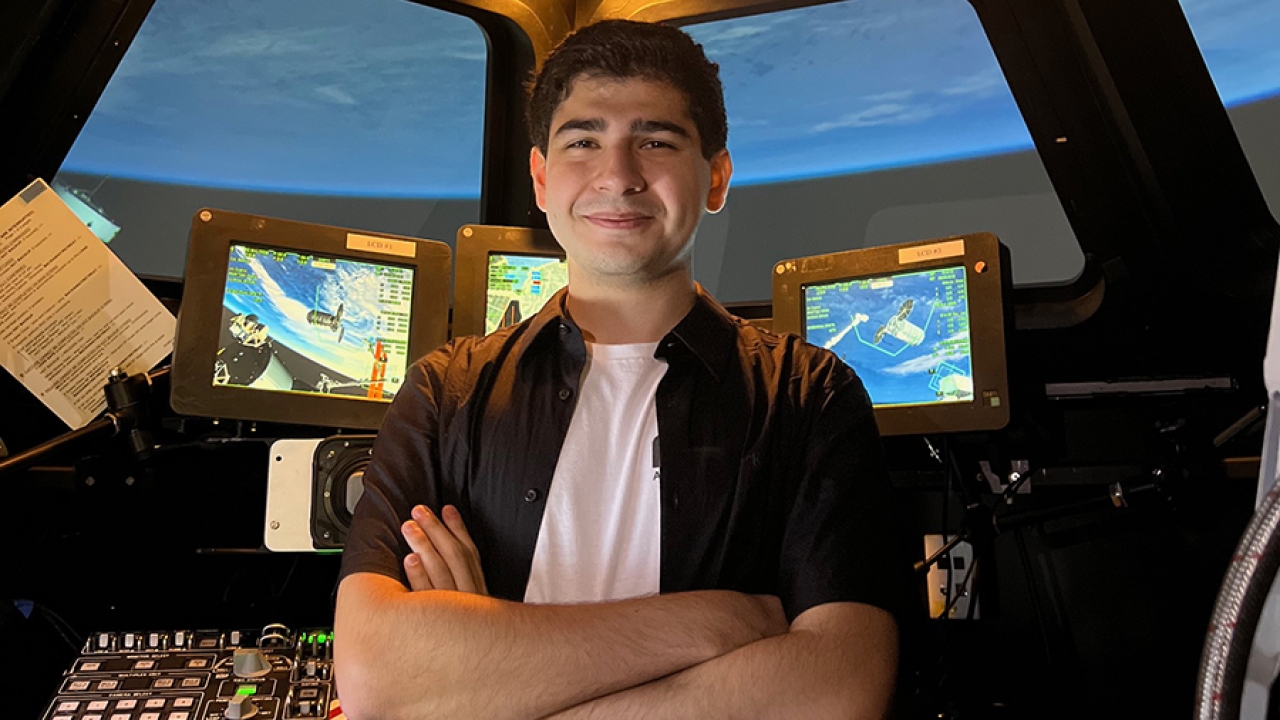Supporting the Next Wave of Water Leaders
By Trevor Stewart and Ashley Han

UC Davis professor and director of the Center for Watershed Sciences Jay Lund explains the important role UC Davis engineers will play in solving water problems that plague societies across the globe.
Lund is a co-champion for the World Water Initiative Big Idea, along with Nicholas Pinter of earth and planetary sciences. Big Ideas are forward-thinking, interdisciplinary programs and projects that will build on the strengths of the university to improve California and the world. This initiative takes on global water challenges such as helping make clean water accessible to all, while supporting prosperity and the environment.
Why is water such an interdisciplinary subject?
No matter how brilliant you are, you’re not going to solve water problems by yourself. You can have the best engineering and the best calculations of the physics, chemistry and biology, but if you can’t get people to agree on how to operate and pay for a system, the system will fall apart. Physics, chemistry, biology, economics, engineering and political science are all important. Integrated water management is the only kind of effective water management since the beginning of water systems thousands of years ago. No successful water system exists that doesn’t bring these perspectives together.
Expert engineers also must be able to bring in people and operations from an interdisciplinary standpoint, because no water problem was ever solved by one person. Probably the most important aspect of solving water problems is bringing people together.
Why should engineers be excited about working on water-related problems?
Engineers will always be central to solving water problems. Everybody is going to look to us first when issues arise, whether it is maintaining existing infrastructure, or building new structures or water facilities. And these problems are really fun to work on because they force you to pull together a lot of different ideas and a lot of different aspects of the problem. Engineering training is unusually good at helping you bring ideas from chemistry, physics, biology, economics and other fields together to come up with solutions.
Can you give an example of a time where UC Davis engineering experts assisted in an important water issue?
We had a series of large projects regarding the Sacramento San Joaquin Delta, bringing together several disciplines from several institutions. We analyzed strategic visions for the Delta, which is the heart of California’s water supply and a major part of its aquatic ecosystems. Our books, reports and discussions helped policymakers deepen their understanding and talk more productively about the Delta’s future. This work and discussions helped lead to positive water legislation passed in 2009. Some legislative staffers said that without our work and engagement, the legislation would not have occurred. It was great to see we had a tangible impact on policy.
Why is hands-on learning important for engineering students involved in water research?
In water education, it is important to get your feet wet. In many cases, we try to do that quite literally, where people go on field trips and rafting trips. The expedition-oriented field classes that we’ve had in the past have been very effective. Students get to know people from all these different fields and departments, which is crucial since water is so interdisciplinary in nature. They also talk about management problems and policy problems nonstop for a period of a week to three weeks, depending on the excursion. It connects students to real-life scenarios they would otherwise not see if they were just reading a book or learning in a classroom.
How are UC Davis engineers poised to be the next world water leaders?
We train engineers to have a good breadth of different scientific disciplines. We have additional programs to educate engineering students in communications so they can write and speak well to communicate clearly with the public. It’s very important for engineers to work well with people, and we’re often encouraging engineers to work with other disciplines and different stakeholder groups.
You don’t find this kind of interdisciplinary training for engineers everywhere.
However, a successful engineer will spend their career working with a lot of different people, not just engineers. And, again, water is interdisciplinary in nature — it will take engineers, as well as many other disciplines, to come together to solve this global issue. UC Davis students are prepared to take on this challenge.
UC Davis’ Big Ideas are forward-thinking, interdisciplinary programs and projects that will build on the strengths of UC Davis to positively impact the world for generations to come. Visit the Big Ideas website at bigideas.ucdavis.edu for more information.




